Region 1
- Events
- Region 1
GE/BU/IBM Electronics Packaging Symposium
Room: Symposium Hall, Bldg: Center of Excellence, Binghamton University State University of New York, 85 Murray Hill Road, Vestal, New York, United States, 13850 Murray Hill Road, VestalBinghamton University, GE Global Research and IBM Research are proud to host the 34th Annual Electronics Packaging Symposium — Small Systems Integration. The program will include two days of exciting invited presentations with a focus on supply chain interconnectivity. We invite you to join us for this event on Sept. 4-5, 2024, at the Binghamton University ITC Complex. We look forward to seeing you in person. The symposium brings together leaders in academia, industry and government to network and discuss the latest advances in the field of electronics packaging, and to bring value from the varying viewpoints of each respective sector. The program will also include keynote presentations and student poster sessions. The goal of the symposium is to have those who attend walk away with insight, career-building opportunities, and the knowledge of having been an integral member in the advancement of the electronics packaging field. Session topics will include: future of computing for HPC/AI, flexible, additive and wearable electronics, heterogeneous integration, photonics packaging, thermal challenges, advanced substrates and power electronics. Also planned are two special panels, the first is a panel to address workforce development challenges to support the CHIPS and Science Act and the second panel to review the new NIST sponsored Heterogeneous Integration Roadmaps, what each of the 4 roadmaps are, where they are focused and how they will help NIST and the electronics packaging industry identify gaps to supporting future packages. Symposium agenda can be found at https://(http://www.binghamton.edu/ieec/eps/agenda.html)(http://www.binghamton.edu/ieec/eps/agenda.html)(http://www.binghamton.edu/ieec/eps/agenda.html)(http://www.binghamton.edu/ieec/eps/agenda.html)(http://www.binghamton.edu/ieec/eps/agenda.html)(http://www.binghamton.edu/ieec/eps/agenda.html)(http://www.binghamton.edu/ieec/eps/agenda.html)(http://www.binghamton.edu/ieec/eps/agenda.html)(http://www.binghamton.edu/ieec/eps/agenda.html)(http://www.binghamton.edu/ieec/eps/agenda.html)(http://www.binghamton.edu/ieec/eps/agenda.html) Register at (https://www.eventbrite.com/e/35th-annual-electronics-packaging-symposium-small-systems-integration-tickets-881352728737?aff=oddtdtcreator) General conference Information including speaker info and exhibitor opportunities: https://www.binghamton.edu/ieec/eps/index.htm Information on Travel and hotels may be found here: https://www.binghamton.edu/ieec/eps/travel.html We hope that you will join us in September. Agenda: https://www.binghamton.edu/ieec/eps/agenda.html Room: Symposium Hall, Bldg: Center of Excellence, Binghamton University State University of New York, 85 Murray Hill Road, Vestal, New York, United States, 13850
Large Language Models (LLMs) for NextG Wireless Networks
Virtual: https://events.vtools.ieee.org/m/431215Special Presentation by Dr. Hao Zhou and Chengming Hu (McGill U., Canada) Hosted by the Future Networks Artificial Intelligence & Machine Learning (AIML) Working Group Date/Time: Thursday, September 5th, 2024 @ 6 PM EDT Topic: Large Language Models (LLMs) for NextG Wireless Networks: Fundamentals and Case Studies in Network Optimization and Prediction Abstract: Large language models (LLMs) have received considerable attention recently due to their outstanding comprehension and reasoning capabilities, leading to great progress in many fields. The advancement of LLM techniques also offers promising opportunities to automate many tasks in the communication networks field. After pre-training and fine-tuning, LLMs can perform diverse downstream tasks based on human instructions, paving the way to artificial general intelligence (AGI)-enabled 6G. This talk will first present a comprehensive overview of LLM fundamentals and applications to wireless networks, discussing wireless-specific LLM training, fine-tuning, and practical deployment. Then, it will present two case studies on specific network optimization and prediction problems, showing detailed prompt and algorithm designs along with simulation results. Speakers: Dr. Hao Zhou is currently a Postdoctoral Researcher at the School of Computer Science, McGill University. He completed my PhD degree at University of Ottawa, Canada, from 2019 to 2023. His research focuses on the intersection between machine learning, optimization, and networked systems, especially for 5G/6G wireless networks and power systems. Dr. Zhou is dedicated to developing novel machine learning algorithms to address a series of optimization problems in networked systems, including resource allocation, computational task offloading, energy efficiency enhancement, energy management and trading, network security, etc. He has published more than 30 peer-reviewed papers, including reputable journals in IEEE Communication and Power Energy Societies, e.g., IEEE Wireless Communications, IEEE Trans. Smart Grid, and IEEE Communications Survey & Tutorials. He has received the Best Paper Award at the 2023 IEEE ICC conference, and the 2023 IEEE ComSoc CSIM TC Best Journal Paper Award for his contributions to transfer learning-enabled wireless network slicing. Dr. Zhou’s PhD Thesis entitled “ML-Based Optimization of Large-Scale Systems: Case Study in Smart Microgrids and 5G RAN” won the 2023 Faculty of Engineering’s Best Doctoral Thesis Award at University of Ottawa. Chengming Hu is currently a Ph.D. candidate at McGill University, Canada. He received M.Sc. in Quality Systems Engineering with Concordia Institute for Information Systems Engineering (CIISE), Concordia University, Canada, in 2019. His research interests focus on investigating computational intelligence techniques to enhance the effectiveness and security of IoT systems, including ensemble learning, knowledge distillation, language model, and feature learning, etc. He is actively working on various real-world applications, including power systems, communication systems, and transportation systems. His work has been published in top-tier, peer-reviewed conferences and journals, including ICLR, IEEE TSG, and IEEE PESGM, etc. Co-sponsored by: Artificial Intelligence & Machine Learning (AIML) Working Group Virtual: https://events.vtools.ieee.org/m/431215
Principles of Asynchronous Serial Communication
Virtual: https://events.vtools.ieee.org/m/431432[] First developed in the early 1900s, asynchronous serial communications continue to find wide application in present day electronic designs. The presentation will cover the following topics: - Asynchronous serial communication defined. - Baud rate, parity, start and stop bits, and handshaking. - Protocols: TTL/logic level, RS-232, RS-422, and RS-485. - USB to serial converters and managing them under Windows. - Windows terminal emulators. - Cables, adapters, surge protection, and isolation. - Serial to IP, Bluetooth, and fiber converters, - Pitfalls 1: common practices that are not recommended but (sometimes) work. - Pitfalls 2: practices that should work but don't always. Speaker(s): Thomas C. Wilson, Jr. Agenda: 7:00 PM Networking 7:20 PM Presentation Virtual: https://events.vtools.ieee.org/m/431432


